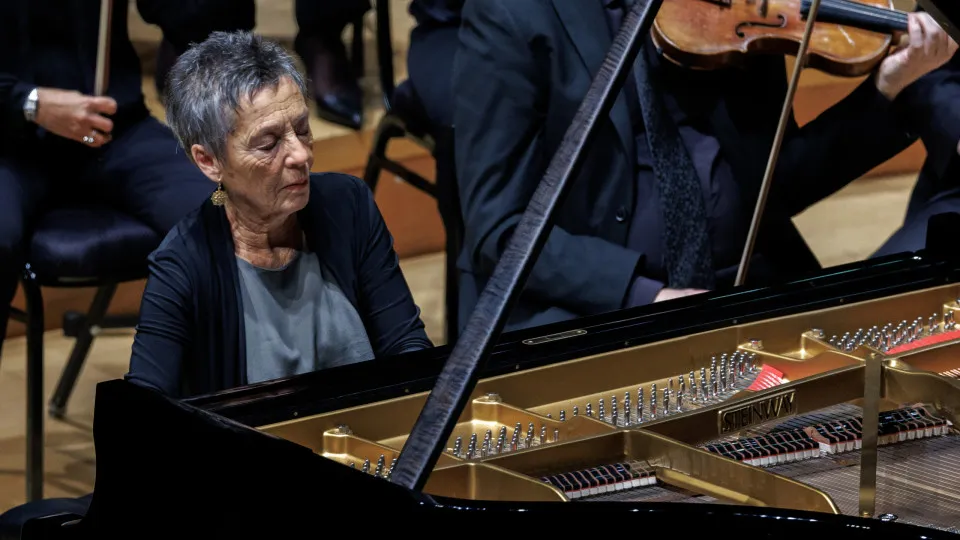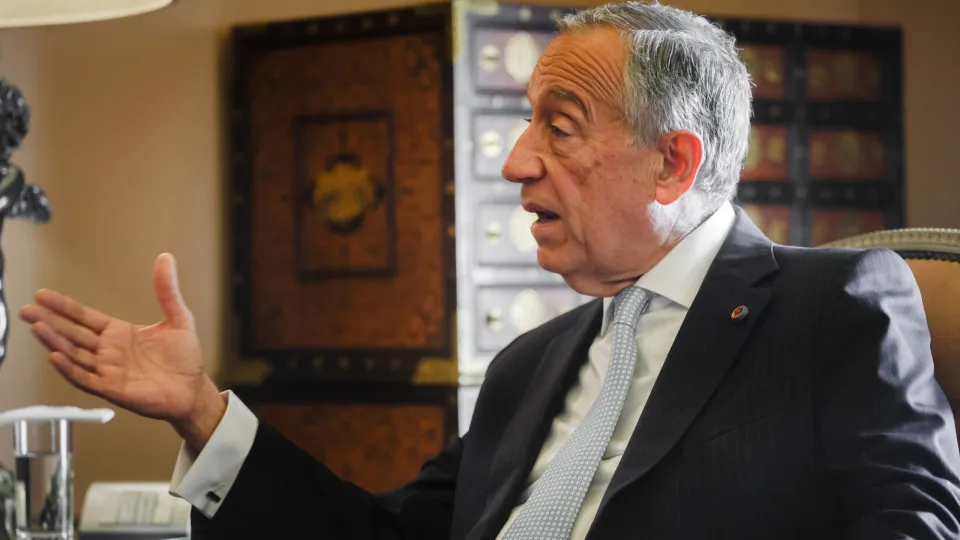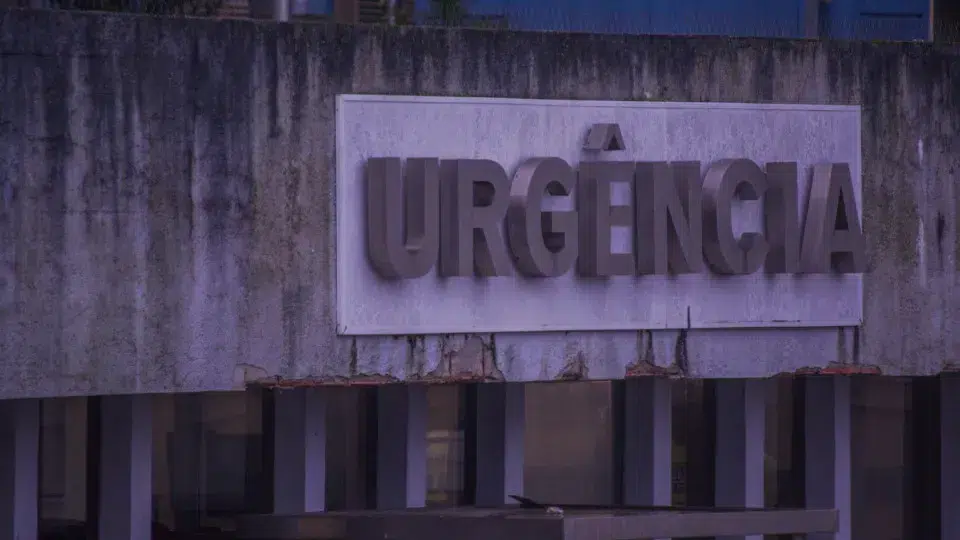
In her acceptance speech for the Helena Vaz da Silva Award, delivered today at the Calouste Gulbenkian Foundation in Lisbon, the 81-year-old artist revealed that she became ill because she tried “to exceed her limits and reach forbidden boundaries.”
“I am now undergoing a radical transformation, searching for truth, not just one, but many, on a path of acceptance, perhaps understanding what I never accepted before. It is good to think that the future is uncertain, unknown, maybe surprising. That uncertainty places us all in a state of insecurity, though often a creative one. In the end, security does not open so many doors; it might even close a greater understanding of the universe and the infinite,” said the most renowned Portuguese pianist.
In her speech, she expressed gratitude—a feeling she believes is innate and should be “cherished and respected throughout life”—not only to those who supported her throughout her life and career but also beyond: “Gratitude for all that we are given, for all that we hear and see, for all that enchants us, for all that generates happiness within us, allows us to dream, move, or sing or smile.”
Recalling that she began playing the piano at age three, when she first fell in love with music, Maria João Pires also stated she never felt “truly adapted nor included despite all the great efforts to feel accepted, to accept herself, to recognize herself as part of a society, of a group of friends and colleagues.”
“I learned the practical life of work, daily routines, the home, children, joys, sorrows, sufferings, and particularly disappointments. I remained between two worlds, the sonic world, always very rich in flexibility, movement, in connection with all art and imagination phenomena. And the other, the one we call the real world, though both seem very real to me,” the artist stated.
Maria João Pires emphasized having “embraced” her role as a “pianist for many years,” a choice that was part of her desire for “inclusion, the deep wish not to be rejected, and at the same time, never to reject others.”
“I worked hard, planned very little, developed a deep interest in science, literature, philosophy, also as a means of understanding and belonging,” said the pianist, who believes “true art is the practice of non-aggression.”
In June, Maria João Pires announced a temporary withdrawal from the stage due to a “cerebrovascular health problem.”
“Dear friends, I regret to inform you that I will have to step away from the stage for some time. A cerebrovascular health problem has arisen, which I see as a sign, perhaps a warning,” wrote Maria João Pires on social media.
“I will dedicate this time to finding balance between body and spirit, and to discovering joy in withdrawing, reading, meditating, and learning from the lessons life wants to teach me,” continued the pianist, thanking everyone “for their patience, support, and kind words.”
Today at the Calouste Gulbenkian Foundation in Lisbon, the pianist Maria João Pires received the Helena Vaz da Silva European Award for the Dissemination of Cultural Heritage.
“This European recognition honors the exceptional contribution of one of the greatest pianists of our time to the promotion of cultural heritage and European values,” stated the National Culture Center (CNC) in September when announcing the award.
The Helena Vaz da Silva European Award was established in 2013 by the CNC, in collaboration with Europa Nostra and the Portuguese Press Club, with support from the ministries of Culture, Youth and Sports, and Foreign Affairs, as well as the Calouste Gulbenkian Foundation and Tourism of Portugal.
In addition to Maria Calado, the jury consisted of Francisco Pinto Balsemão, founder of the Impresa group, Piet Jaspaert, vice president of Europa Nostra, João David Nunes from the Portuguese Press Club, Guilherme d’Oliveira Martins, administrator of the Gulbenkian Foundation, Irina Subotic, president of Europa Nostra Serbia, and Marianne Ytterdal from the Council of Europa Nostra.




